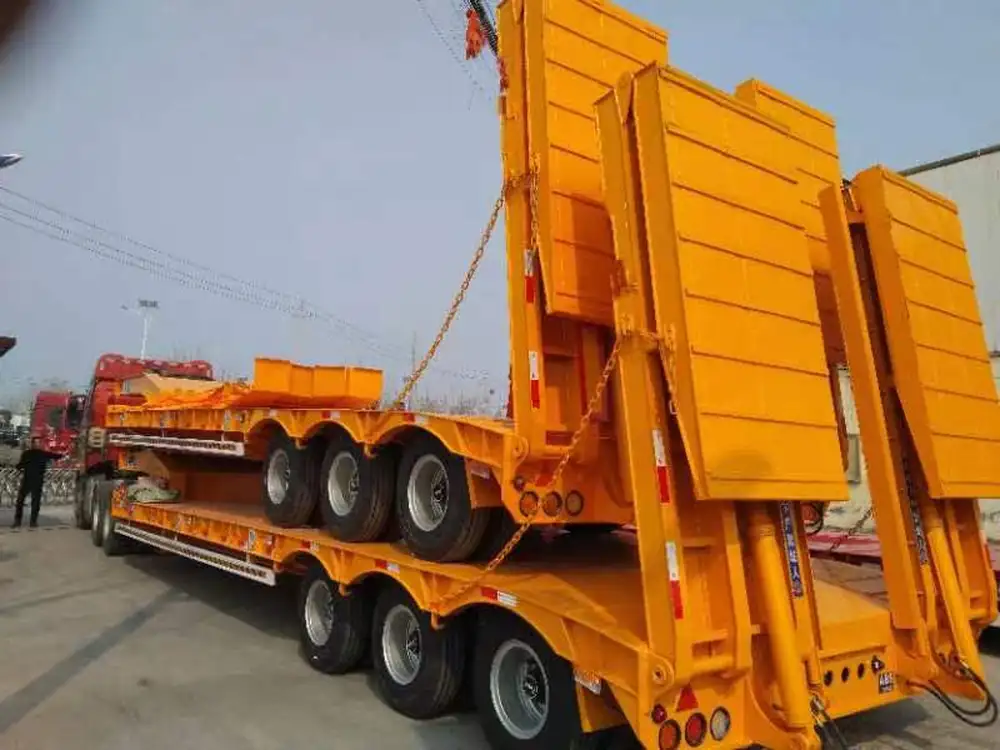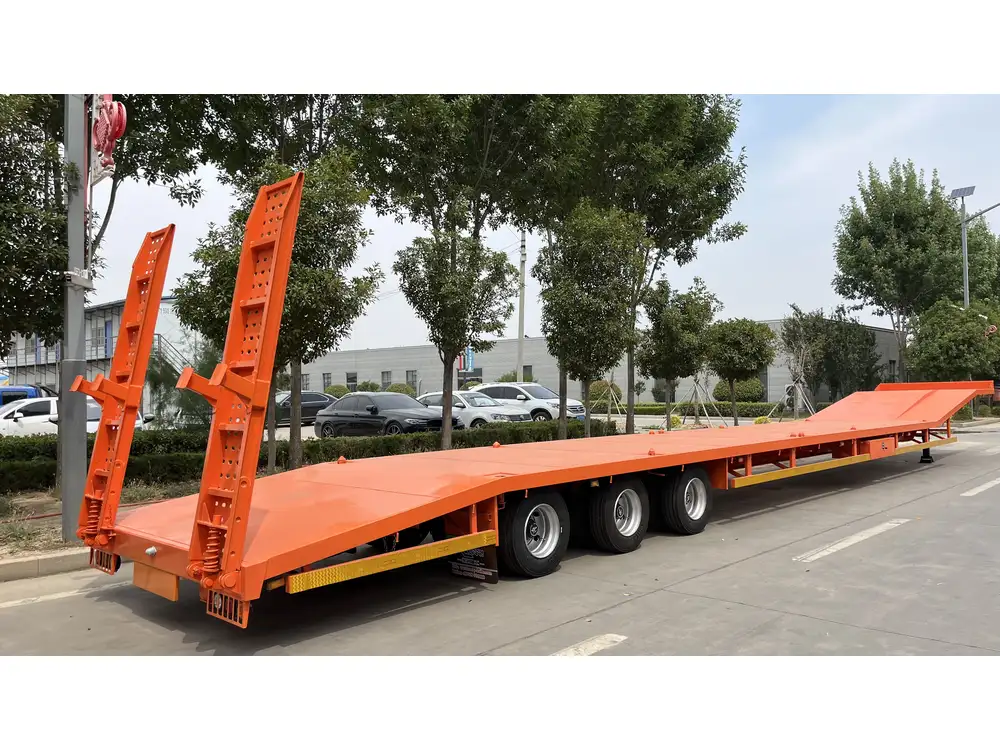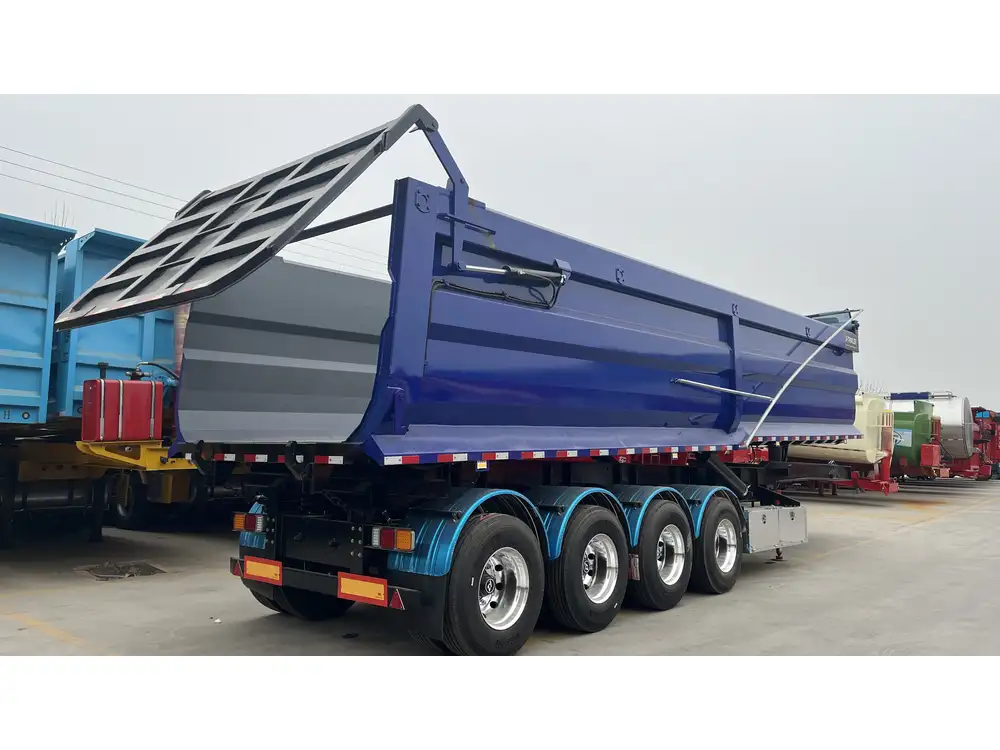When navigating the world of dump trailers, one question frequently arises among potential buyers and operators: What does a 5k dump trailer mean? The terminology, though straightforward at first glance, encapsulates critical aspects of construction, towing capacity, design, and application. This article will explore these dimensions, demystifying the significance of the term “5k dump trailer” while providing a comprehensive guide for those contemplating a purchase.
What is a Dump Trailer?
Before delving into the specifics of a 5k dump trailer, it’s essential first to understand the nature of dump trailers themselves. A dump trailer is a type of trailer specifically designed to transport loose materials—such as gravel, sand, dirt, and debris—primarily used in construction, landscaping, and various agricultural applications. The primary feature that differentiates dump trailers from conventional flatbed trailers is their hydraulic lift mechanism, which allows for the unloading of cargo through tipping or dumping.
Key Features of Dump Trailers
| Feature | Description |
|---|---|
| Hydraulic Lift | Enables easy unloading by tilting the trailer bed. |
| Ramp Options | Many models come with optional ramps for drive-on loading of equipment. |
| Towing Capacity | Varies widely based on trailer size and construction, affecting load capabilities. |
| Materials | Typically constructed from steel or aluminum for durability and strength. |
| Sizes | Range from compact models ideal for residential use to larger models for heavy-duty tasks. |

Decoding “5k” in a Dump Trailer
In the term “5k dump trailer,” the “5k” refers to the trailer’s weight capacity, specifically indicating its maximum load threshold. More precisely, a 5k (or 5,000 pounds) dump trailer is rated to carry up to 5,000 pounds of payload. This classification is crucial for ensuring that operators do not exceed their vehicle’s limits, which can lead to performance issues, safety hazards, and vehicle damage.
Importance of Understanding Weight Capacity
Understanding the weight capacity of a dump trailer is fundamental for various reasons:
Safety Considerations: Exceeding weight limits can compromise trailer brake efficiency and vehicle handling, creating dangerous situations on the road.
Legal Compliance: Overloading may violate regional towing laws, leading to fines or penalties.
Equipment Longevity: Sticking within payload limits contributes to the durability and longevity of the trailer, reducing wear and tear.
Weight Distribution and Its Implications
The distribution of weight in a 5k dump trailer can significantly affect towing performance. Here are key aspects to consider:
Load Securing: Properly securing loads prevents shifting during transit. Loose loads can lead to instability, increasing the risk of accidents.
Balanced Loading: Even weight distribution minimizes strain on the towing vehicle, optimizing fuel efficiency and control.
Towing Vehicle Compatibility: Ensuring that your towing vehicle can handle a 5k dump trailer is essential to avoid overtaxing. The Gross Combined Weight Rating (GCWR) is a crucial specification to identify.

Types of 5k Dump Trailers
Dump trailers come in various configurations, each serving specific applications. Here are some common types of 5k dump trailers, outlining their unique features and uses:
1. Single Axle Dump Trailers
- Capacity: Typically closer to the 5,000-pound limit.
- Usage: Commonly used for residential tasks like yard clean-up or small landscaping projects.
- Maneuverability: Easier to handle in tight spaces due to size.
2. Dual Axle Dump Trailers
- Capacity: Generally can allow for heavier loads with better weight distribution.
- Usage: Suitable for more extensive projects like construction site debris removal.
- Stability: Improved stability compared to single axle designs.

3. Gooseneck Dump Trailers
- Capacity: Often exceeds 5,000 pounds, providing greater payload options.
- Usage: Ideal for heavy-duty operations such as commercial construction.
- Towing Stability: Offers superior stability while towing due to the connection method.
4. Tilt Trailers
- Capacity: May vary but often aligns closely with standard dump trailers.
- Usage: Commonly used for moving equipment that requires drive-on capability.
- Operation: Rapid loading and unloading due to the tilting design.
Choosing the Right 5k Dump Trailer for Your Needs
Selecting the appropriate 5k dump trailer hinges on understanding your specific requirements. To assist in this decision-making process, we have compiled a table of key considerations:
| Consideration | Questions to Ask Yourself |
|---|---|
| Usage | What materials will you be transporting? Are they heavy or light? |
| Frequency | How often do you require a dump trailer? |
| Towing Capabilities | What is the towing capacity of your vehicle? Do you have the right hitch type? |
| Budget | What is your budget for purchasing a trailer? |
| Storage | Do you have sufficient space to park the trailer when not in use? |

Long-Term Cost Considerations
Owning a dump trailer, particularly a 5k variant, involves costs beyond the initial purchase price. The following factors should be considered for a more holistic view:
Maintenance: Regular inspections and maintenance extend the life of your trailer. Allocate a budget for routine repairs, replacements, and servicing.
Insurance: Inquire about insurance policies that cover your dump trailer for liability and damage protection.
Resale Value: Investigate the resale market for the brand and type of trailer you’re contemplating; some models retain value better than others.
Frequently Asked Questions (FAQs)
What type of materials can a 5k dump trailer transport?
A 5k dump trailer is versatile enough to transport various materials including gravel, sand, soil, mulch, construction debris, and more. However, it’s essential to avoid transporting hazardous materials unless expressly permitted.

How do I know if my truck can tow a 5k dump trailer?
To determine if your truck can tow a 5k dump trailer, check its towing capacity as specified in the owner’s manual. Ensure that the Gross Combined Weight Rating (GCWR), which combines the weight of your truck, trailer, and payload, does not exceed the vehicle’s limits.
Can I modify a 5k dump trailer?
While modifications can be made, it’s crucial to consult with a professional to avoid compromising safety or exceeding weight limits. Modifications might include adjusting the ramp height or changing the hitch system.
What maintenance is required for a 5k dump trailer?
Regular maintenance includes checking the hydraulic system, inspecting the brakes and lights, lubricating moving parts, and monitoring tire pressure for optimal performance and safety.

Are there specific legal restrictions on towing a 5k dump trailer?
Yes, local and state regulations may impose specific weight restrictions for towing. Always review these laws to ensure compliance, including obtaining necessary permits if needed.
Conclusion
In summary, understanding the term 5k dump trailer extends well beyond its mere definition of weight capacity. It encompasses a broader spectrum of considerations, including safety, operational efficiency, and the implications of trailer selection for specific tasks. By exploring the types, features, and maintenance aspects of 5k dump trailers, prospective buyers can make informed decisions that enhance productivity and safety in their hauling tasks. Whether you are in construction, landscaping, or agriculture, grasping the intricacies of a 5k dump trailer will ensure that you select the right equipment for your needs, paving the way for streamlined operations and successful project completions.



